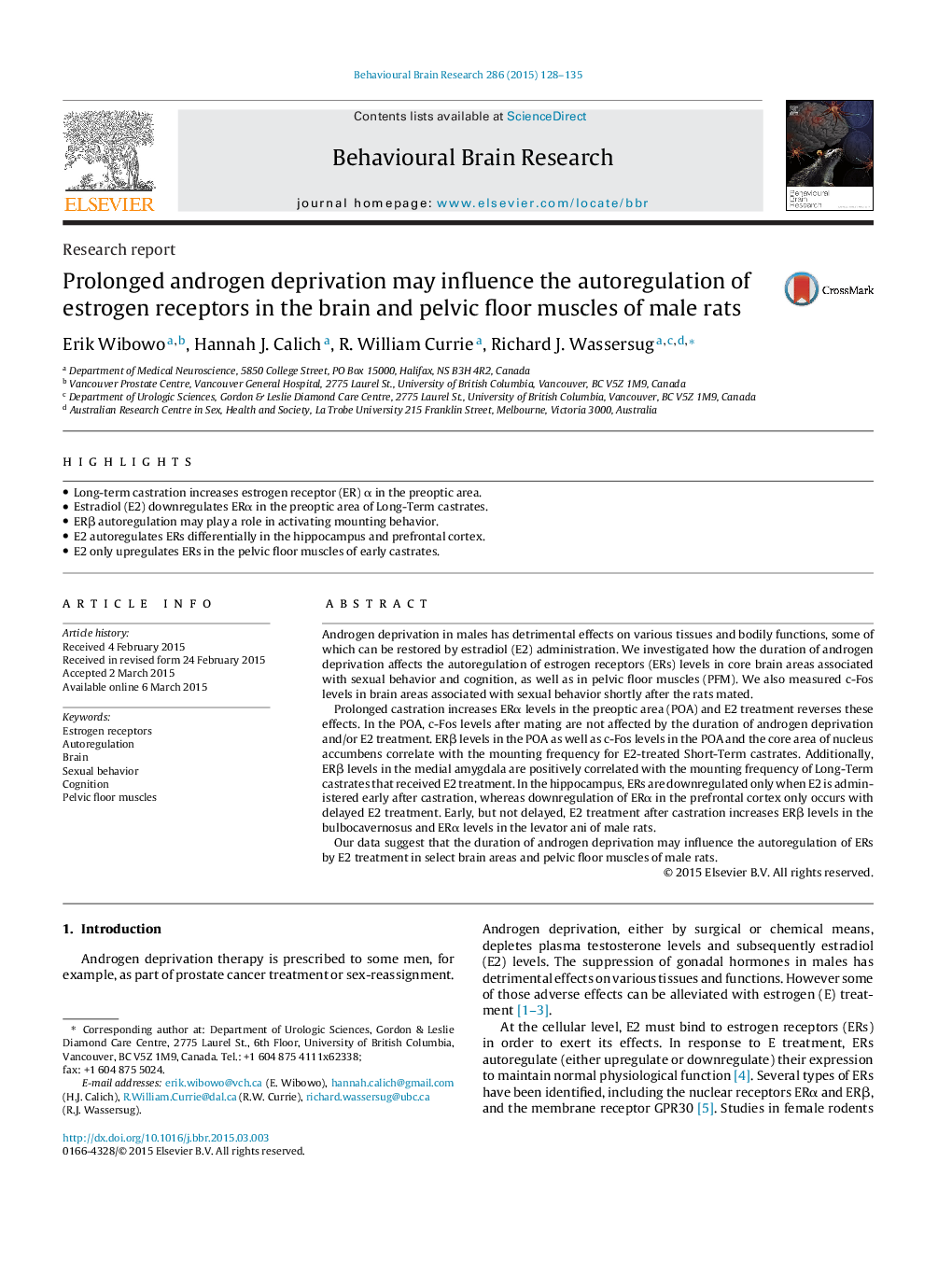| Article ID | Journal | Published Year | Pages | File Type |
|---|---|---|---|---|
| 6257108 | Behavioural Brain Research | 2015 | 8 Pages |
â¢Long-term castration increases estrogen receptor (ER) α in the preoptic area.â¢Estradiol (E2) downregulates ERα in the preoptic area of Long-Term castrates.â¢ERβ autoregulation may play a role in activating mounting behavior.â¢E2 autoregulates ERs differentially in the hippocampus and prefrontal cortex.â¢E2 only upregulates ERs in the pelvic floor muscles of early castrates.
Androgen deprivation in males has detrimental effects on various tissues and bodily functions, some of which can be restored by estradiol (E2) administration. We investigated how the duration of androgen deprivation affects the autoregulation of estrogen receptors (ERs) levels in core brain areas associated with sexual behavior and cognition, as well as in pelvic floor muscles (PFM). We also measured c-Fos levels in brain areas associated with sexual behavior shortly after the rats mated.Prolonged castration increases ERα levels in the preoptic area (POA) and E2 treatment reverses these effects. In the POA, c-Fos levels after mating are not affected by the duration of androgen deprivation and/or E2 treatment. ERβ levels in the POA as well as c-Fos levels in the POA and the core area of nucleus accumbens correlate with the mounting frequency for E2-treated Short-Term castrates. Additionally, ERβ levels in the medial amygdala are positively correlated with the mounting frequency of Long-Term castrates that received E2 treatment. In the hippocampus, ERs are downregulated only when E2 is administered early after castration, whereas downregulation of ERα in the prefrontal cortex only occurs with delayed E2 treatment. Early, but not delayed, E2 treatment after castration increases ERβ levels in the bulbocavernosus and ERα levels in the levator ani of male rats.Our data suggest that the duration of androgen deprivation may influence the autoregulation of ERs by E2 treatment in select brain areas and pelvic floor muscles of male rats.
